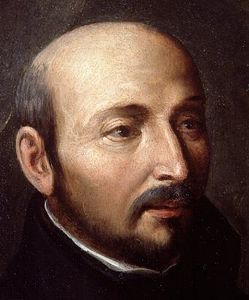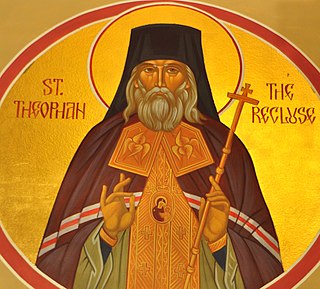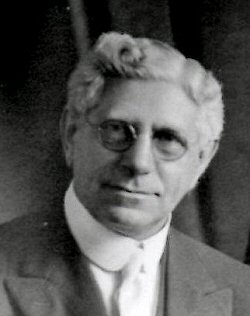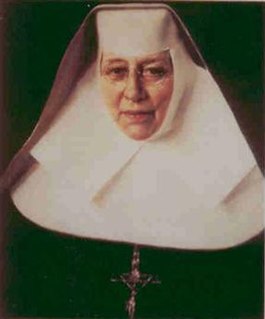A Quote by Ignatius of Loyola
One of the most admirable effects of Holy Communion is to preserve the soul from sin, and to help those who fall through weakness to rise again. It is much more profitable, then, to approach this divine Sacrament with love, respect, and confidence, than to remain away through an excess of fear and scrupulosity.
Related Quotes
Marital intercourse is certainly holy, lawful and praiseworthy in itself and profitable to society, yet in certain circumstances it can prove dangerous, as when through excess the soul is made sick with venial sin, or through the violation and perversion of its primary end, killed by mortal sin; such perversion, detestable in proportion to its departure from the true order, being always mortal sin, for it is never lawful to exclude the primary end of marriage which is the procreation of children.
We cannot describe the natural history of the soul, but we know that it is divine. All things are known to the soul. It is not to be surprised by any communication. Nothing can be greater than it, let those fear and those fawn who will. The soul is in her native realm; and it is wider than space, older than time, wide as hope, rich as love. Pusillanimity and fear she refuses with a beautiful scorn; they are not for her who putteth on her coronation robes, and goes out through universal love to universal power.
I believe that You, O Jesus, are in the most holy Sacrament. I love You and desire You. Come into my heart. I embrace You. Oh, never leave me. May the burning and most sweet power of Your love, O Lord Jesus Christ, I beseech You, absorb my mind that I may die through love of Your love, Who were graciously pleased to die through love of my love.
[Christ's] mission and work it is to help against sin and death, to justify and bring life. He has placed his help in baptism and the Sacrament [i.e., communion/Eucharist/Lord's supper], and incorporated it in the Word and preaching. To our eyes Baptism [capitalized in original] appears to be nothing more than ordinary water, and the Sacrament of Christ's body and blood simple bread and wine, like other bread and wine, and the sermon, hot air from a man's mouth. But we must not trust what our eyes see.
Sin is a lonely thing, a worm wrapped around the soul, shielding it from love, from joy, from communion with fellow men and with God. The sense that I am alone, that none can hear me, none can understand, that no one answers my cries, it is a sickness over which, to borrow from Bernanos, “the vast tide of divine love, that sea of living, roaring flame which gave birth to all things, passes vainly.” Your job, it seems, would be to find a crack through which some sort of communication can be made, one soul to another.
We, with all of our sin, weakness, and failures are welcome to do what should blow our minds. We are not only tolerated by God at a distance; no, we are welcomed into intimate personal communion with the King of kings, the Lord of lords, the creator, the sovereign, the Savior. We, as unholy as we are, are told to go with confidence into his holy presence.
An honorable man would never abandon his friend in time of need, especially if they were in a foreign country. Why? For fear of acting like a coward or of being boorish. I repeat, I admire the fact that, those persons have, through human respect, more courage than Christians and priests have, through charity or through their good intentions.
Do you wish to learn the secret of true Eucharistic prayer? Consider, then, all the mysteries in the light of the Blessed Sacrament. It is a divine prism through which they can all be studied. The Holy Eucharist is, indeed, 'Jesus Christ, yesterday, and today, and the same forever' (Heb 13:8). In this Sacrament He glorifies all the mysteries of His life and prolongs, as it were, the exercise of all His virtues. The Eucharist is, in a word, the great Mystery of our faith to which all Catholic truths lead
The world has witnessed the rise and fall of monarchy, the rise and fall of dictatorship, the rise and fall of feudalism, the rise and fall of communism, and the rise of democracy; and now we are witnessing the fall of democracy... the theme of the evolution of life continues, sweeping away with it all that does not blossom into perfection.































